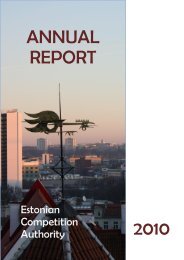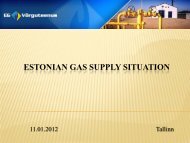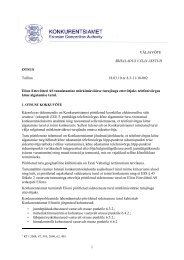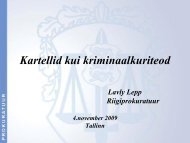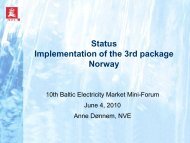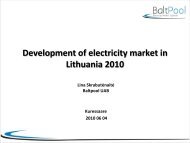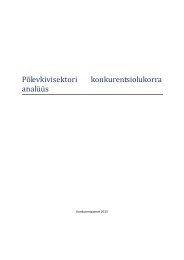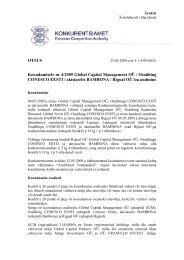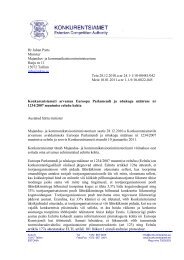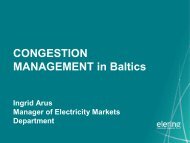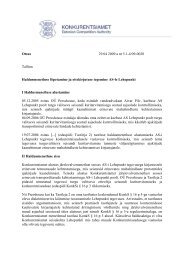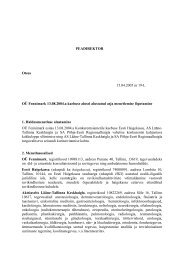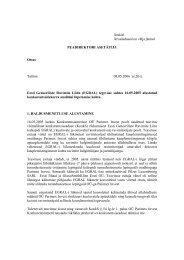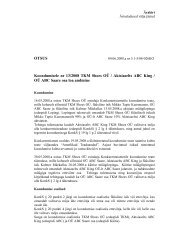annual report 2011 - Konkurentsiamet
annual report 2011 - Konkurentsiamet
annual report 2011 - Konkurentsiamet
Create successful ePaper yourself
Turn your PDF publications into a flip-book with our unique Google optimized e-Paper software.
According to Regulation 944/2010 of the European Parliament and European Council, the<br />
member states are obliged to prepare risk analyses concerning the natural gas supply. As the gas<br />
grids of the Baltic States are closely linked, Estonia, Latvia and Lithuania prepared a joint risk<br />
analysis. According to Regulation 944/2010, a preventive measure plan must be prepared on the<br />
basis of the risk analysis in 2012, and an emergency situations plan in 2013.<br />
Price regulation of heating undertakings<br />
Pursuant to the District Heating Act, a local government is entitled to establish district heating<br />
regions within the boundaries of its administrative territory. The only permitted heating option to<br />
be used in district heating regions is district heating (except for persons who did not use district<br />
heating at the time district heating regions were established), so consumers cannot choose<br />
alternative heating methods and the heating undertaking obtains a monopoly status. Pursuant to<br />
the Establishment of Price Limitations to Monopolies Act, only the Competition Authority has<br />
the rights and obligations to carry out supervision of the District Heating Act and approve the<br />
maximum prices of heat sold by heating undertakings. The main objective of the amendments to<br />
the District Heating Act was to ensure more comprehensive and intensive supervision of the<br />
district heating sector in order to contribute to a more uniform regulation and equal treatment of<br />
undertakings in the entire sector.<br />
The maximum prices of sold heat are approved for district heating regions, the number of which<br />
in Estonia is around 200. The economic prosperity and efficiency of undertakings depend, above<br />
all, on the volume of sales in these regions, the fuel used, technical efficiency (the efficiency<br />
coefficient of heat production and heating pipeline losses) and the undertaking’s ability to make<br />
investments to ensure the higher efficiency and sustainability of district heating. As the prices of<br />
fuel, especially natural gas and oil shale have increased considerably, small-scale heating<br />
undertakings, with fuel costs amounting to 70% or more in the structure of their expenses, which<br />
had been under the regulation of local governments so far, became especially active in applying<br />
for the approval of heating limit prices.<br />
Small district heating regions with the volume of sales below 3,000 MWh, where district heating<br />
sustainability in the future cannot be ensured even if reasonable investments are made, have<br />
become clearly distinguishable, and it would be more feasible to stop price regulation in such<br />
regions and provide consumers with an opportunity to choose from cheaper alternative heating<br />
options.<br />
27



